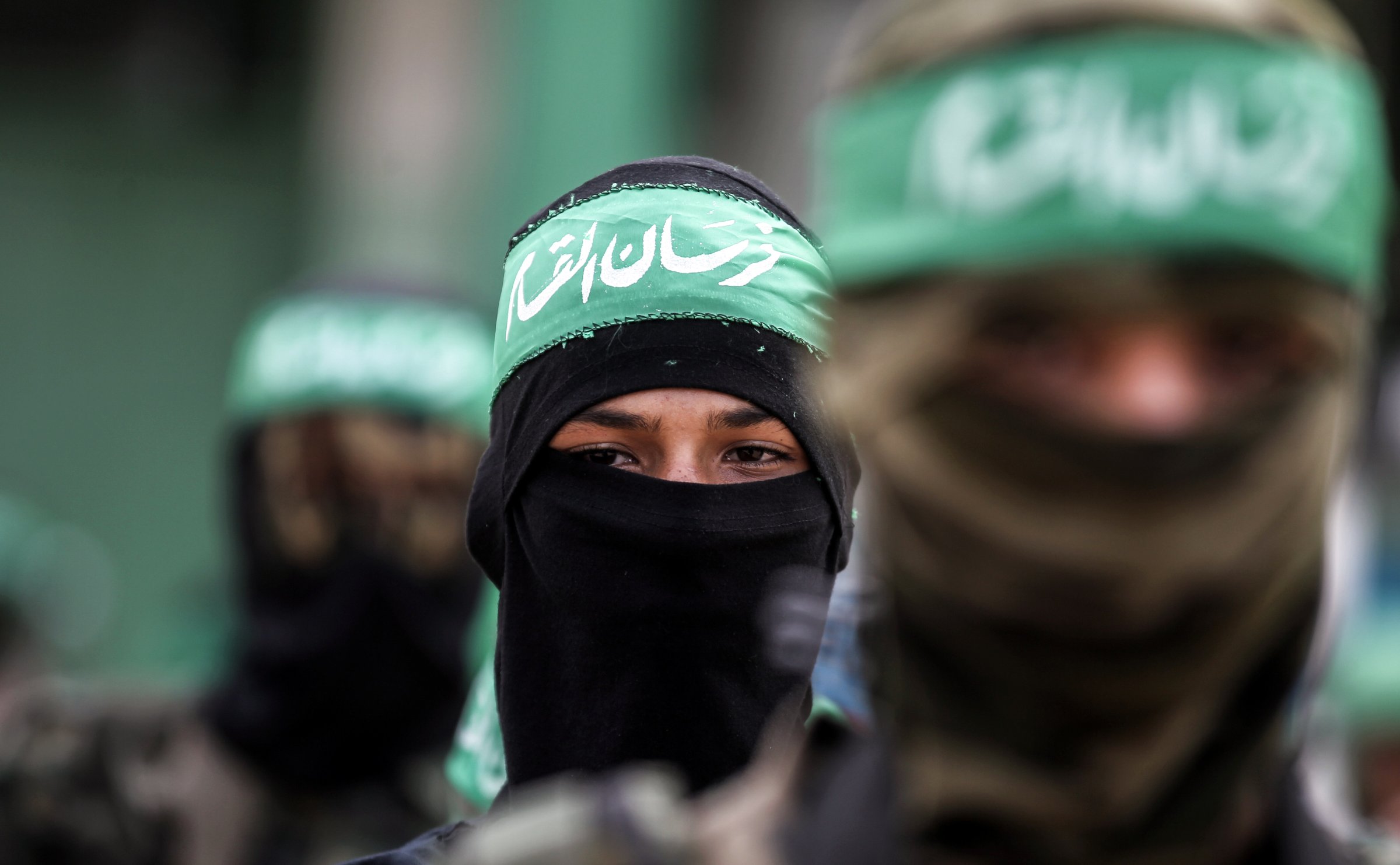
In the decade since the militant group Hamas waged civil war with its rival Fatah political party, the stateless Palestinians have been left without a unified voice on the world stage. Now, that might be about to change.
Over the weekend Hamas took a step toward unity by agreeing to elections in Gaza and the West Bank, raising the prospect of reunification after ten years of squabbling and violence. Few think the political split is over for good, but Hamas’ move reflects a desire by the group to come in from the cold — and creates a chance to ease the plight of the 1.8 million Palestinians living under an Israeli and Egyptian blockade in the Gaza Strip.
Right now Gaza is under Hamas control and subject to three major Israeli military operations in the last eight years. In the West Bank, President Mahmoud Abbas controls the Palestinian Authority, ruling over the archipelago of territory squeezed in between Israeli settlements. The millions of Palestinians living in diaspora in Jordan, Syria, Lebanon, and beyond are represented in theory by Abbas and the Fatah-led Palestine Liberation Organization.
The feud between the Fatah and Hamas has intensified in recent months. After Hamas formed an administrative committee take on key government functions in Gaza in March, Abbas accused the Islamists of attempting to form a “shadow government.” Abbas retaliated by cutting off payments for fuel for the Gaza Strip’s power plant, reducing households to a few hours of electricity a day, the worst electrical shortage in memory. He also cut salaries for PA employees in Gaza, impinging on the livelihoods of tens of thousands of people. The PA also briefly stopped issuing permits for Gazans to leave the strip in order for medical treatment.
Under pressure, Hamas has now agreed to dissolve the administrative committee as well as holding elections. That still leaves the two sides far from reconciliation, says Nathan Thrall, a senior analyst on Israel/Palestine at International Crisis Group, but it could help ease some of the punishment imposed on Gaza. “Those kinds of steps could be reversed. And I think there’s a decent chance that that minimalist version of implementation is possible,” he said.
Anything more might be untenable; since the 2007 civil war between Hamas and Fatah, the factions have engaged in a seemingly endless series of talks and agreements, some more successful than others. The two sides have twice formed a unity government that later collapsed. In 2007, the government lasted only a few months as Hamas violently took control of Gaza and Fatah cracked down in the West Bank. In 2014, the Israeli-Palestinian conflict in the Gaza strip killed more than 2,000 Palestinians and 70 Israelis, and Abbas dissolved the unity government a year later.
There’s little to suggest the Palestinian Authority leadership has shifted its position on Hamas. Fatah officials say they refuse to accept Hamas maintaining its own military and security forces, and the PLO still excludes Hamas. Moreover, the militant group is unlikely to give up Gaza, its key source of leverage. No date has been set for elections, and recent efforts to hold voting in the West Bank and Gaza have collapsed over political disagreements. Although Abbas publicly welcomed Hamas’ announcement, the Palestinian president may have have his own reservations about once again partnering with his political opponents.
Analysts point to Abbas’ sanctions on his own people in Gaza as a sign of his unwillingness to compromise with Hamas. “Mahmoud Abbas will accept nothing less than unconditional surrender and capitulation by Hamas,” says Mouin Rabbani, a senior fellow with the Institute for Palestine Studies. “He’s prepared to burn the Gaza Strip to the ground and watch everyone inside it starve in order to obtain this unconditional surrender.”
Hamas’s step towards reconciliation comes in a season of change for the Islamist movement. In May the group elected onetime Palestinian Prime Minister Ismail Haniyeh as its new leader, elevating an official with experience both of the PA electoral system and of the wars in Gaza. The organization also released a new policy document that accepts the pre-1967 borders separating Israel from the West Bank and Gaza, without recognizing Israel explicitly—a more moderate stance that moved it closer to Fatah’s own official position. The document also dropped any reference to Hamas’s parent organization, the Muslim Brotherhood. This may have contributed to a recent renewal of relations with Cairo, which considers the MB a terrorist organization, and Gaza’s border with Egypt has since opened more frequently.
It’s not the only place where the Islamist group is attempting to navigate the evolving politics of the Middle East, forming relationships with an array of rival actors. The organization recently moved to repair relations with Iran, setting aside tensions resulting from Hamas’ break with the Syrian regime of President Bashar Assad in 2012. The Gulf states’ blockade of Qatar also seems to have pushed the group to diversify its potential patrons and allies. But repairing relationships closer to home will undoubtedly prove to be the tougher task.
More Must-Reads From TIME
- The 100 Most Influential People of 2024
- Coco Gauff Is Playing for Herself Now
- Scenes From Pro-Palestinian Encampments Across U.S. Universities
- 6 Compliments That Land Every Time
- If You're Dating Right Now , You're Brave: Column
- The AI That Could Heal a Divided Internet
- Fallout Is a Brilliant Model for the Future of Video Game Adaptations
- Want Weekly Recs on What to Watch, Read, and More? Sign Up for Worth Your Time
Contact us at letters@time.com